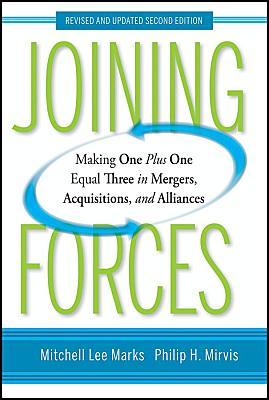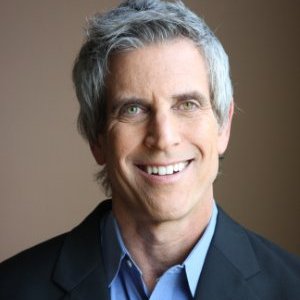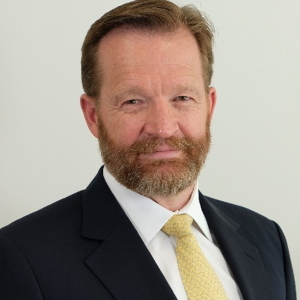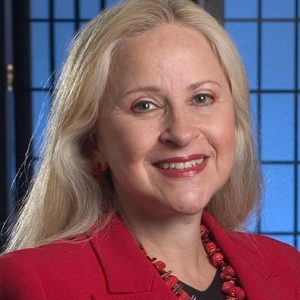Mitchell Marks Speaker Biography
Expert on Managing Corporate Transitions,
Professor of Leadership, San Francisco State University
College of Business and President, JoiningForces.org
Mitchell Lee Marks is an internationally recognized expert on managing corporate mergers and acquisitions, organization design, corporate culture and executive teambuilding. He is Professor of Leadership at San Francisco State University’s College of Business and President of the consultancy JoiningForces.org. He is a frequent speaker to corporate audiences and professional groups including the Harvard Business School, Smithsonian Institution, and the American Psychological Association.
Consultant
Mitch consults with a wide variety of firms in the United States and abroad, advising on issues of organizational change, team building, strategic direction, organizational design and structure, corporate culture, human resources management, employee motivation, and the planning and implementation of mergers, acquisitions, alliances, and reorganizations. His clients range from small start–‐ups to large multinational corporations, as well as government and not–‐for–‐profit organizations. Mitch has advised in over 100 cases of major organizational transitions.
Clients
Current or past clients include Pfizer, Intel, Motorola, BNP Paribas, Bank of the West, Citicorp, AT&T, Lockheed Martin Corporation, Unisys, Hewlett Packard, Abbott Laboratories, Johnson & Johnson, BP, Molson Breweries, Bank of America, American Airlines, Kaiser Permanente Medical Care Program, DigitalGlobe, Blue Shield of California, U. S. Department of Energy, Los Angeles County, the March of Dimes, and others in the financial services, manufacturing, health care, entertainment, transportation, high technology, publishing, consumer products, and communications industries.
Media
Reports of Mitch’s work have been featured in publications such as the Wall Street Journal, Fortune, The Economist, New York Times, U.S. News and World Report, Business Week, Time, and Sports Illustrated, as well as on the PBS News Hour, NBC Nightly News, CNBC, CNN and other television programs.
Books
Mitch is the author of eight books—including Joining Forces: Making One Plus One Equal Three in Mergers, Acquisitions, and Alliances (now in its second edition) and Charging Back Up the Hill: Workforce Recovery after Mergers, Acquisitions and Downsizings (providing practical advice and examples of how to rebound from the unintended negative consequences of difficult transitions)—and scores of articles in practitioner and scholarly journals including the Harvard Business Review and MIT Sloan Management Review.
Education
Mitch Marks received his Ph.D. in Organizational Psychology from the University of Michigan, where he conducted the first studies on human and cultural aspects of mergers and acquisitions. His research has been recognized in ways including the Outstanding Contribution to Organizational Behavior award from the Academy of Management and he is a Fellow of the Society of Industrial/Organizational Psychology.
Mitchell Marks Speaking Topics
Creating the “New Normal”: Using the Global Pandemic as an Opportunity to Rethink and Rebuild Your Corporate Culture
The impact of the global COVID pandemic is still reverberating in organizations and their people. Leaders cannot control the pandemic, but they can control the extent to which their people, processes and systems deal with it. Leaders can use the pandemic as an opportunity in many ways, ranging from immediate workplace enhancements to longer-term organization development: • Specifying new expectations for remote work • Balancing onsite and remote work dynamics • Identifying opportunities to reduce inefficiency and enhance effectiveness at the individual, team and organization-wide level • Clarifying post-pandemic career paths and opportunities • Rethinking and rebuilding corporate culture • Assessing and enhancing organizational design. This presentation highlights case examples of workplace leaders being proactive in not just contending with pandemic fallout but using it to enhance employee productivity, teamwork and overall organizational effectiveness. And, it provides practical tools to aid in creating the New Normal.
Navigating Organizational Change and Transition
Change and transition have always enveloped workplaces and their people. This presentation examines how some people not only survive during disruptive times but actually thrive in ways like improving their personal performance, team work and overall organizational effectiveness. It provides insight into the stages people go through in dealing with change and transition and practical tools for both minimizing the downside consequences and maximizing the upside opportunities. These opportunities include both short-term benefits like maintaining productivity and focus and long-term benefits like enhancing career development and contributing to a desired organizational culture. This session presents both the “science” of workplace change and the practical “application” of tools and techniques for managing change and transition in the workplace. It features colorful stories of how individuals have used these tools during change and transition to enhance both their personal situations and their overall organizational dynamics.
Surviving and Thriving During Organizational Change and Uncertainty
Change and uncertainty have always enveloped workplaces and their people. This presentation examines how some people not only survive during times of uncertainty but actual thrive in ways like improving their personal performance, team work and overall organizational effectiveness. It provides insight into the stages people go through in dealing with change and uncertainty and practical tools for both minimizing the downside consequences of disruption and the upside opportunities. These opportunities include both short-term benefits like maintaining productivity and focus and long-term benefits like enhancing career development and contributing to a desired organizational culture. The presentation presents both the “science” of workplace change and the practical “application” of tools and techniques for managing change and uncertainty in one’s work environment. It also provides colorful stories of how individuals have used change and uncertainty to enhance both their personal situations and their overall organizational dynamics. And, it provides ample time for individuals to share their experiences, express their concerns and ask questions about surviving and thriving during difficult times: • Dealing with distraction from productivity and burnout • Using change and uncertainty as opportunities for personal development and organizational enhancement • Managing the boundaries of remote work • Developing realistic expectations for the impact on career advancement • Maintaining productivity while avoiding burnout • Finding opportunities to rework personal and organizational missions
DEVELOPING A LEADERSHIP STYLE IN TODAY’S BUSINESS ENVIRONMENT--Leading and Managing Your Organization to Excellence
The pressures on executives in today’s work organizations are substantial and varied, including increased globalization, rapid technological advances, changing market conditions and evolving customer expectations. Amidst all these forces, executives must produce short-term results to satisfy superiors and shareholders, while developing a long-term perspective to build customer loyalty and employee motivation. This presentation shows leaders how to balance competing pressures while producing desired business results. It helps participants distinguish between “managing” and “leading” and determine their own style and appropriate actions for moving themselves, their work teams, and their organizations forward.
MAINTAINING PRODUCTIVITY DURING ORGANIZATIONAL CHANGE
This presentation for team leaders explains the stages employees go through during times of intense organizational change and shows how to manage each stage to help employees let go of old ways of thinking about and doing things and then accepting new ones. It provides proven methods for maintaining productivity during transition and getting employees focused on new business realities and opportunities.
CULTURE MATTERS
This presentation provides empirical data showing that corporate culture does matter in achieving financial results. It offers a model for building a desired corporate culture. And, it shows the many ways executives and managers directly and indirectly influence employee behaviors and attitudes.
Mitchell Marks Books

Joining Forces 2nd Edition: Making One Plus One Equal Three in Mergers, Acquisitions, and Alliances
Purchase Book
Charging Back Up the Hill: Workplace Recovery After Mergers, Acquisitions, and Downsizings
Purchase Book





